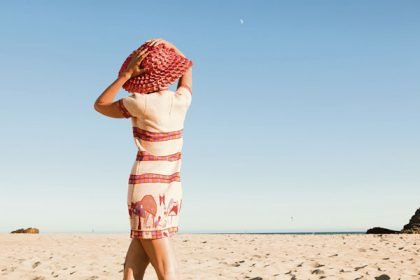 By Sarah Sharp
By Sarah Sharp
While standing in line at the grocery store, Dr. Marta Kazymyra of Bay Medical Clinic in Blaine often spots the warning signs of skin cancer on the shopper in front of her. She will tap strangers on the shoulder and whisper, “I don’t mean to be rude but this is who I am, and you might want to get this checked out,” she said.
Kazymyra is trained to always be on the lookout for those signs in her patients: discoloration in the skin, precancerous lesions, moles that change size or color and other troubling growths, sores and lumps.
She’s seen too many cases of skin cancer to count, but it’s her goal to detect them early – and always err on the side of caution when she notices a questionable mark on the skin.
Skin cancer takes three forms: basal cell carcinoma (BCC) and squamous cell carcinoma (SCC), which comprise the majority of cases, and melanoma, the most aggressive type of all.
According to the American Academy of Dermatology, one in five Americans will develop cancer in their lifetime, a growing percentage that makes skin cancer the most common cancer in the United States.
Kazymyra sees about six to eight cases of basal and squamous cell carcinomas every month, and three to four cases of melanoma every year, she said.
People with fair skin, blond or red hair and blue or green eyes are most at risk, though skin cancer can strike anyone for a number of reasons, including family history, existing scars or burns, a lifetime of working with arsenic and chronic skin inflammation, she said.
While Pacific Northwest natives might be tempted to soak in every ray of long-awaited sun this summer, Kazymyra said that would be a mistake.
“The thing about the Pacific Northwest is because we have clouds most of the year, people assume they’re not getting any sun, and they are,” she said. “[In the summer] they want to go out and stay out. So if you are going to go outside, you need to protect yourself.”
To be proactive in preventing skin cancer, Kazymyra offered these recommendations:
• Limit sun exposure by avoiding the most potent UV rays in the midmorning to early afternoon. UV light can be exacerbated by increased mountain elevation and the presence of water or ice, creating more risk of sunburn while hiking, skiing and swimming. Twenty minutes of sun exposure every day to promote vitamin D production is the most common recommendation.
• Before sun exposure, apply sunscreen with a sun protection factor (SPF) of at least 30, reapply often and wear protective clothing. This is especially important for children, as overexposure to the sun in childhood can eventually cause skin cancer in adulthood.
• Wear sunglasses to protect the eyes from developing premature cataracts and other damage.
• Do not smoke. “It’s the worst thing you can do for your skin,” she said. It adds about 10 to 15 years to the appearance of your skin, which becomes dull-looking with the addition of early wrinkles.
• Drink the recommended eight glasses of water a day, and eat plenty of fruits and vegetables. Avoid consuming high fructose corn syrup.
• Sleep eight hours every night to naturally rejuvenate the skin.
• Find the right facial care product for you – and be wary of products “as seen on TV.” The most expensive product on the market that Jennifer Aniston claims she uses may not be the best one for your skin. Generally, a simpler regime does the job, she said. “Time marches on, and we all age, but we can age gracefully,” she said.
Comments
No comments on this item Please log in to comment by clicking here